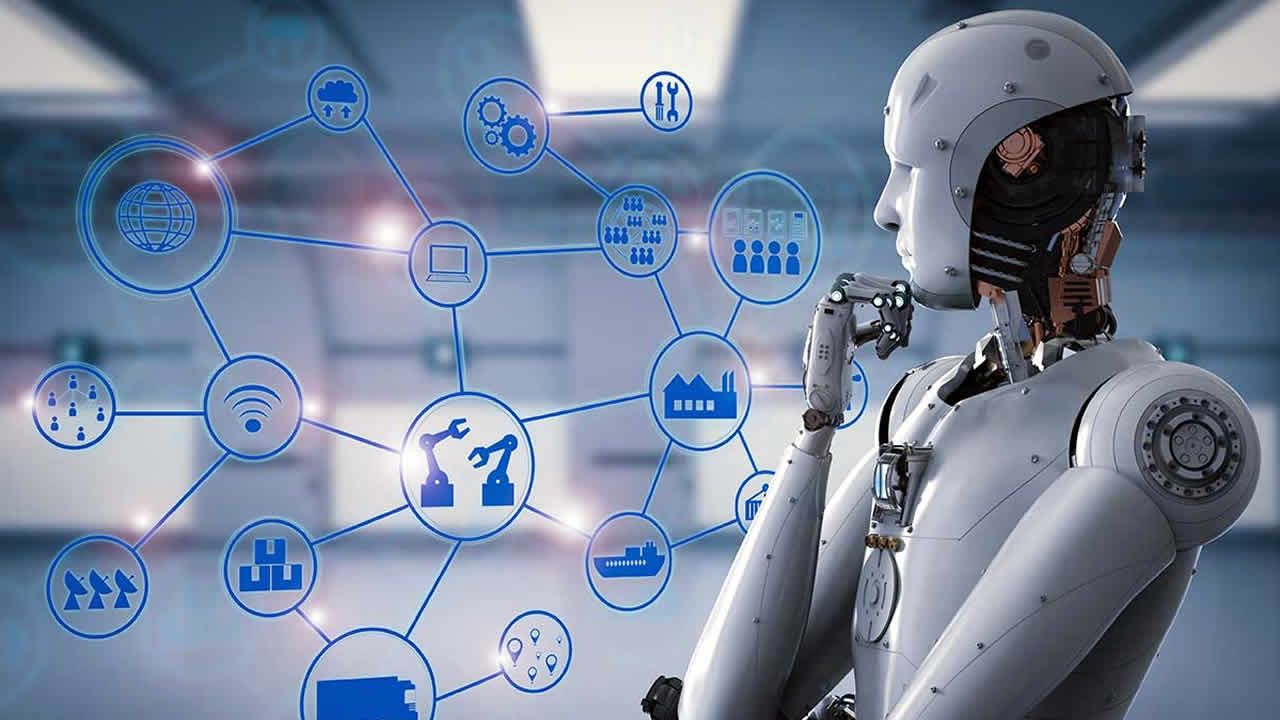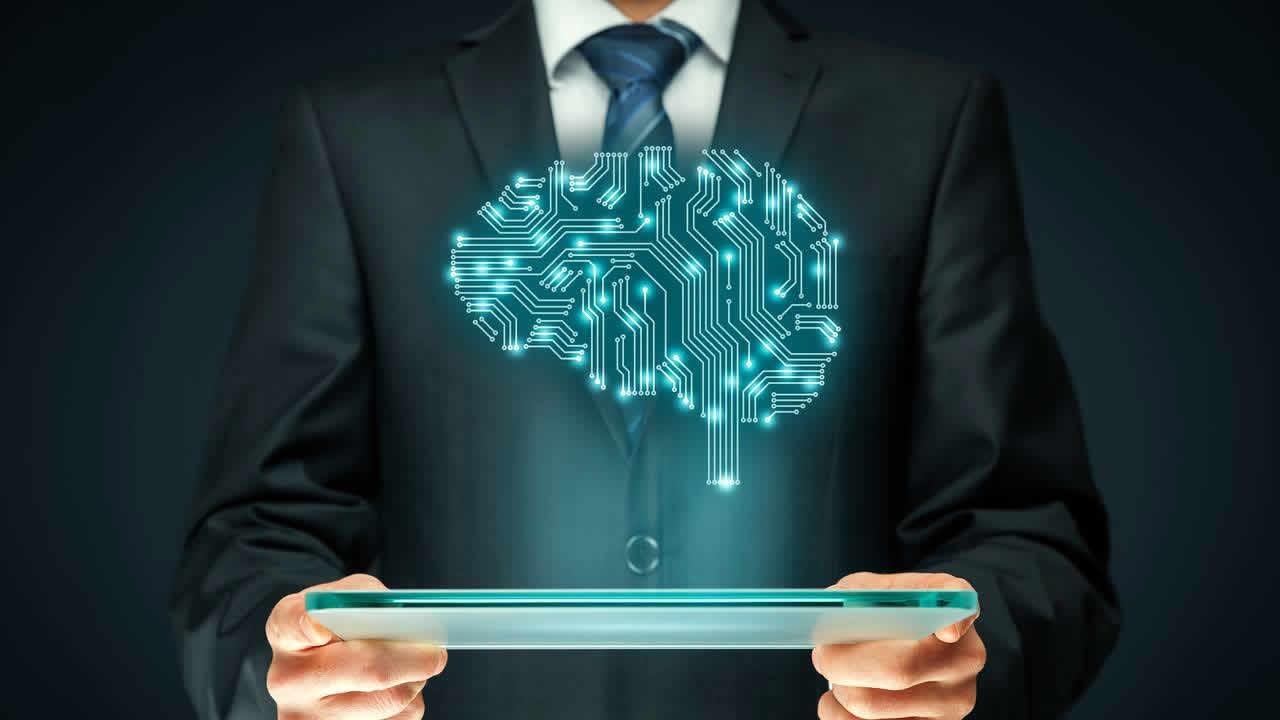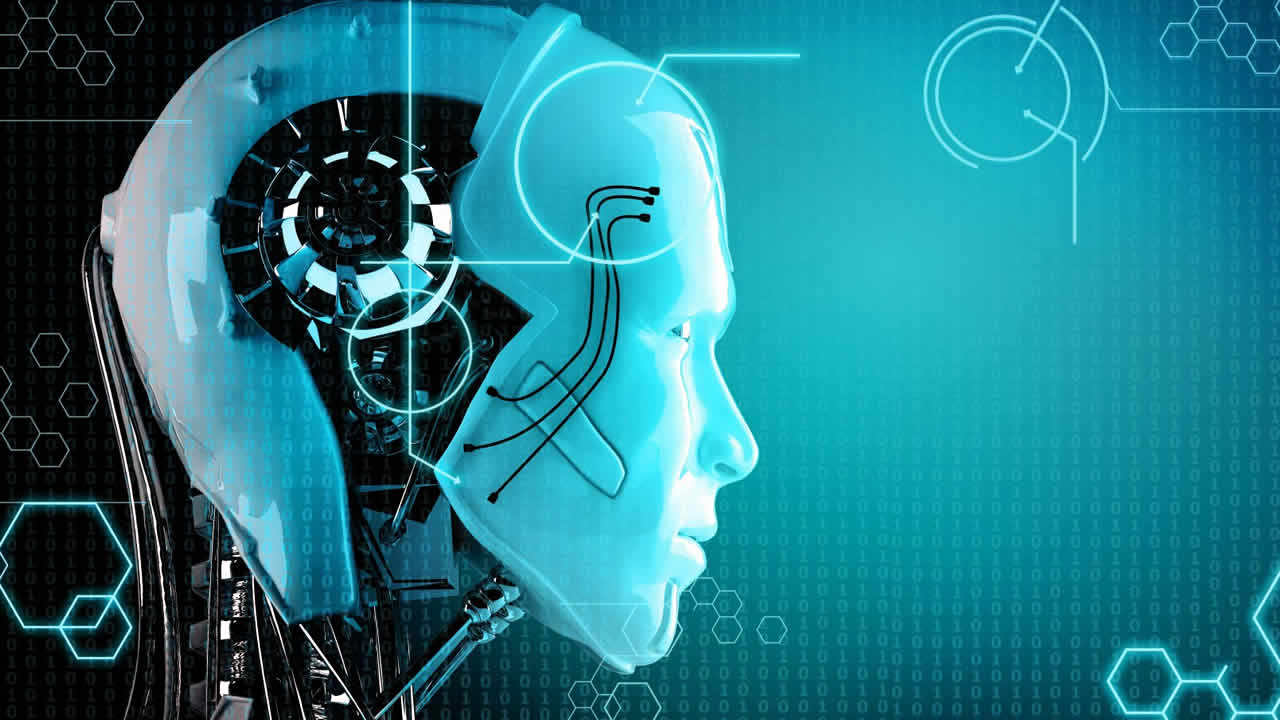
The prospects of Artificial Intelligence (AI) are thrilling not only for high income economies but also for small ones like Mauritius which are marching towards a transformative journey. AI is expected to permeate every major industry from healthcare to finance, education and transportation. However, in African countries including Mauritius, this technology carries with it a fear of loss of employment. Will AI prove to be more of boon or a bane? Experts shed lights on its impact, consequences and vast opportunities.

In the previous Budget 2018-2019, the Government has put much emphasis on fostering the development of a new growth pole revolving around AI. Worldwide experts predict that AI could contribute up to 15.7 trillion to the global economy in 2030. Similarly, Accenture research states that AI would double annual economic growth rates in 2035 as well as bring various changes in the nature of work between human and machine.
According to the McKinsey Global Institute, AI is contributing to a transformation of society “happening ten times faster and at 300 times the scale or at roughly 3,000 times the impact” of the Industrial Revolution. AI is not a new concept; in fact, this concept was coined in 1956 by the scientist John McCarthy at Dartmouth College, USA. Now after 60 years, this concept has taken a new dimension. Thus, Mauritius cannot lag behind in this rapid transformation.

Nevertheless, the main issue has been raised by the World Economic Forum (WEF), which predicts a loss of around five million jobs by 2020 in fields like BPOs, which has been a major pillar for middle class economies like African countries.
Dr. Heman Mohabeer, who is currently Head of Artificial Intelligence and Data Science at BIRGER, argues that right now, in Mauritius, there is a significant turmoil in the technological aspect as everyone wants to race toward AI. “AI promises to deliver in terms of opportunities and the way we do business. However, there seem to be some confusion as to how to embark into the so called ‘industry 4.0’, as there are no significant guidelines on how to proceed with the adoption of AI. Natural language processing, Computer vision and blockchain promises to change the technological facet but we need to be cautious since all these revolves around data. Unless we can consolidate our local laws regarding data privacy and transparency, people will either reject or be cautious of AI. After all, much of AI is still a black box and lots of people fail to understand the mechanism behind the wonders of AI/machine learning.”

Dr. Ramesh Caussy, CEO and Founder Partnering Robotics, on his part, underlines that Mauritius, like most of the countries in Africa, is nowhere as almost nothing has been done during the past 20 years. “We have a lack of leadership in Mauritius and Africa in the fields of technology and AI. Our decision makers and investors do not believe in our potential and explore the usual patterns that build of future chains.”
Impact on Mauritian society
As per the report of the Economist Intelligence Unit, it is expected that AI has a positive impact on growth (90%), productivity (86%), innovation (84%) and job creation (69%) in their countries and industry. In Mauritius, the impact is multifold.
Dr. Oomesh Gukhool, Senior Lecturer at the University of Mauritius, states the small size of the country offers significant challenges. “Our human resource and know-how are major assets which are conducive to an acceptable degree of economic resilience. However, sustaining such resilience necessitates the development of new strategies. One factor that may increase the degree of our economic resilience is through digital transformation. AI will lead to the digital transformation of our island. It can be a major avenue to enhance economic development as well as to improve our quality of life.”

The Senior Lecturer also adds that AI may help to strengthen national competitiveness. “AI will help to accelerate the pace of innovation in Mauritius. With the right framework, AI can ensure a better democracy with the advent of deep fake detection, by promoting direct democracy, and by reducing the distortion of information.”
For Dr Heman Mohabeer, the impact of AI will be huge as it will bring unprecedented opportunities if we are able to fully harness it. “Mauritius is geographically well positioned to become a technological hub and an incubator for the sub-Saharan African region. The most important contribution that AI will bring is efficiency and transparency in the various sectors. AI will allow a much closer integration of the ‘human-technology’ relationship and will enable people to perform more efficiently. Contrary to speculations, new jobs will be created.”
Dr. Ramesh Caussy highlights that like in every country, AI will progressively modify the industries, markets, and the value chains. “This will give rise to players and change to positioning of the existing incumbent actors. Whether people like it or not, this means transformation and need to embrace this new technology and use case dissemination.”
Economic impact
Economist Dr Bhavish Jugurnath evokes fundamental economic issues. “AI creates a new way of thinking about technology, business development and strategic execution. Overall, we can expect to see a spike in the frequency, flexibility and immediacy of data analysis across industries and applications to drive business decisions.”
Prospects

Referring to the Budget 2018-2019, Dr Gukhool avers that the introduction of the Mauritius Artificial Intelligence Council will scale opportunities in this field. “The Government will be setting up a task force to develop a road map for Mauritius in order to measure the socio-economical impacts of the promotion of AI. It is also important to boost research with the aim to pioneer advance AI research in order to bring innovation and attract foreign investment.” The Senior Lecturer highlights that the formulation of an AI policy is mandatory to sustain an ethical and effective integration of AI in our local context.
Already, lots of opportunities are being created by the impact of AI across the world. Mauritius is no different, says Dr Heman Mohabeer. “There is a major scarcity in talents in the field of AI. If we manage to fit the right curriculum in our educational system, then the opportunities and impact will be big. Data scientist, Machine learning engineer are among the few job skills that will be required. Adoption of AI in different sectors will bring its fair share of contribution toward making those sectors more efficient. However, we need to invest heavily and start developing the relevant to avoid job mismatch once AI takes over the so called ‘traditional technologies’.”
Loganaden Velvindron recalls that it is an opportunity for a small country to make a major impact on the world map. “People are unaware that Mauritius has contributed to Internet Security already by working on new internet protocols such as TLS 1.3. Same can be done with AI if we have the right people, the right environment and the right business model. However, the private sector needs to work together with the public sector to retain our brains which will build those opportunities.”
Major contribution across sectors
From transport to finance, health, insurance or SMEs, AI will bring remarkable transformation in the short and long term. Some of the major contributions have been summarized as follows by experts.
Reduce road congestion
For the Senior Lecturer, the introduction of road sensors and cameras will be essential in the collection of data regarding traffic flow. He believes that machine learning can be useful to identify traffic patterns and anomalies, while complex algorithms may help in road decongestion. AI can be a crucial element in altering the behaviour of road users in view of mitigating road accidents.
Increase productivity
Dr Oomesh Gukhool argues that the use of AI (Big data and Analytics) will optimise business processes and increase productivity. AI will improve the accuracy of product/service demand estimation, provide predictive maintenance, foster personalised manufacturing, and bring efficiency to product supply chains. AI will be beneficial to the agriculture sector since it will improve efficiency, for instance, using AI and image processing techniques to identify crop diseases and to monitor soil productivity
Dr. Ramesh Caussy argues that AI will bring more fluid coordination mechanisms of the country as well as the bureaucracy process. “It will also create new opportunity for the industrial and institutions to reduce costs and create new jobs. This is what Schumpeter called ‘the creative destruction’.”
Build smarter cities
The Senior Lecturer firmly believes AI will be able to learn how people use cities. “Data from ticket sales, tax information, police reports, sensors and cameras can be significantly important for pattern recognition. AI can count and track movement of vehicles as well as pedestrians, read license plates and recognise faces, in order to reduce drive time, improve security, and make better use of smart grids to streamline power and water usage in our cities.”
Improve the efficacy of the Government-to-Citizen system
AI will provide personalised services for the Government-to-Citizen system, thus reducing delays and effort required as well as scaling citizen satisfaction, says the Senior Lecturer. “Chatbots can be used as digital representatives for selective citizen services. Sentiment analysis can be helpful to better perceive citizen inquires and feedback.”
Position Mauritius as technological hub
Dr Heman Mohabeer believes that AI could help to make Mauritius a technological hub thereby solving various problems such as road infrastructure planning, smart health care system, intelligent crop farming. Just like currently AI is used to identify and predict which crops to adopt based on climatic condition change in Australia.
Employment cut off : Myth or reality?

One of the major fears is job cut off, which has been predicted by various experts. What could be the situation in Mauritius? Dr Bhavish Jugurnath argues that there is a possibility of a new era that could improve the lives of people. “One of the biggest concerns regarding AI is that it will replace human labour. 9% of all jobs are indeed at high risk of being automated. However, a new set of personnel will be required to build, maintain, operate and regulate emerging technologies linked to AI and to help people learn to work with them. Therefore, there is a resistance from employees and decision-makers to adopt a technology that might end up replacing their co-workers. The overall impact of AI in jobs is highly controversial today. A recent study launched by the World Economic Forum predicts that AI will destroy 5 million jobs in 15 major developed and emerging countries. However, industry leaders such as Microsoft, IBM and Salesforce affirm the opposite, that the use of AI in businesses will instead create qualified jobs.”
The Economist recalls that AI needs to be explored for the value it brings to specific business functions rather than for a need for novelty. “Skills scarcity is a major constraint on the adoption of AI. All economic sectors are facing the need to adapt their workforce’s skill sets. At stake is their ability to support and complement the AI-powered user experience. To do so, companies have two options: they can either hire external talents or they can rely on their own resources. The first obstacle here is the general shortage of digital talents and data scientists in Mauritius. Companies therefore need to upskill and retrain their own human resources, which is a complex and costly process.”
For Dr Heman Mohabeer, there is more of a myth than a fact when it comes to loss of jobs. “The reality is that there will be job displacement rather than job loss. Indeed, people will need to work smarter as they will be assisted by AI. In fact, more opportunities will be created rather than losses. As at now, the best AI works using supervised learning, meaning that it must be instructed on how to perform. We are a long way (probably at least one hundred years if technology revolves in the similar trend) to achieve completely autonomous machine capable of reasoning without the assistance of human being.”
Dr. Ramesh Caussy argues that there will be cut offs but there will also be new opportunities and people, organization, society, again need to work on their abilities to adapt to the new needs. “This is a kind of Darwinian technological evolution.”
For Loganaden Velvindron, AI will assist people more in their work rather than replacing them. “There are still cases where AI can fail. Many of those AI systems have failures, so you still need a human being to check on them.”

Notre service WhatsApp. Vous êtes témoins d`un événement d`actualité ou d`une scène insolite? Envoyez-nous vos photos ou vidéos sur le 5 259 82 00 !





















